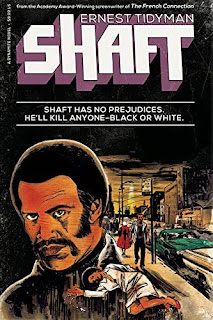Spoiler Alert: "opportunity" is a wonderful word.
THE BOOK-Written by E. R. Brathwaite, released 1959
THE MOVIE-Directed & written by James Clavell, released 1967
THE STORY-Reluctance meets recalcitrance in London's East End. Life for Ricky Brathwaite hasn't been easy. He's educated and experienced, but he's also ebony, so he hears lots of "no's" at job interviews. Words from a stranger lead Ricky to Greenslade Secondary School, where he is tasked with educating a classroom of disrespectful snots.
MIND THE GAP-To Sir, With Love missed the first round of "Better In Your Head?" since I mistakenly assumed it was a memoir, and thus ineligible for inclusion. Turns out, TSWL is an "autobiographical novel," wherein the author tweaks a tale just enough to avoid litigation.
Columbia Pictures encouraged filmmakers to spice the soup--a dash of rape, a touch of school-wide skirmish. Something sensational to draw audiences in. Turns out, casting Sidney Poitier as the teacher (renamed Mark Thackery) sufficed. Poitier's effortless dignity and command of character made all the difference between an unenthusiastic thumbs-up and wholehearted applause. Moving the action ahead two decades also helped.
The second-best movie theme sung by Lulu appears twice: over the opening credits and over a still-photo montage of the students enjoying some well-supervised culture. Pure belter, but how funny that an unabashed love song to a teacher became such a massive hit in the decade infamous for an unprecedented proliferation of subcultures that promoted the power of life outside the mainstream.
One of Brathwaite's former charges, Alfred Gardner, wrote An East End Story as a rebuttal of sorts to his chronicle of tough love. Gardner's "Sir" is "a tall, humourless disciplinarian with a fiery temper," prone to hurling objects at non-attentive pupils. The truth is knowable only to a select few, but honestly, book Brathwaite doesn't come off a bastion of appropriacy. His descriptions of female students are gross: "full lips," "long, lovely neck," "large breasts greasily outlined beneath the thin jumper," "their prominent breasts clamored for attention." Uck. Glad he left the teaching biz before he got caught three fingers deep in some under-cooked pie.
BETTER IN YOUR HEAD-E.R. Brathwaite despised the film version of To Sir, With Love. Sentimental slop that glossed over the prejudices he faced, hear him tell it. I wish I felt so strongly either way.
Usually, losing interior monologues in the transition from page to screen is a lethal loss. If Mr. Brathwaite wrote as penetratingly, as eloquently on the difficulties he faced in his job as he does those on those he faced as a black man in post-war England, such would be the case here. The film casts a shadow to this day, and the book is visible only in that shadow.













